If you missed Sunday’s message you can catch up by listening here or over at crosspointe.org/series/the-book-of-james
My brothers and sisters, do you with your acts of favoritism really believe in our glorious Lord Jesus Christ? For if a person with gold rings and in fine clothes comes into your assembly, and if a poor person in dirty clothes also comes in, and if you take notice of the one wearing the fine clothes and say, “Have a seat here, please,” while to the one who is poor you say, “Stand there,” or, “Sit at my feet,” have you not made distinctions among yourselves, and become judges with evil thoughts? Listen, my beloved brothers and sisters. Has not God chosen the poor in the world to be rich in faith and to be heirs of the kingdom that he has promised to those who love him? But you have dishonored the poor. Is it not the rich who oppress you? Is it not they who drag you into court? Is it not they who blaspheme the excellent name that was invoked over you? You do well if you really fulfill the royal law according to the scripture, “You shall love your neighbor as yourself.”
— James 2:1-8
Have you ever gotten the sense that you’re supposed to believe rich people are bad and poor people are good? Some of us have heard hints of this, or heard it said outright. Even preached at church.
Verses like those found in James 2 seem to make the point loud and clear. As a result, we’re left thinking that to take faith seriously we have to denounce possessions and those who posses them. Ascetics for Jesus!
Bear in mind that as we read James, who writes as a fellow family member and not as some detached judge, he’s trying to help steer his brothers and sisters away from a very specific phenomenon. And the phenomenon is simply this: they continue to gravitate to simplistic cultural definitions of power and influence. They want to be like the rich kids, and they want the rich kids to want to play with them. In their defense, who can blame them? Like us, they wanted to align themselves with comfort, with influence, with what’s “happening” and to have a life that doesn’t feel like it’s always an uphill battle. But as they pursue all this, they slight and neglect their poorer brothers and sisters, pushing them into the margins of their communities where they can’t negatively affect progress and, in doing so, slowly unbind themselves from God — The God who very clearly doesn’t overpower the world like the empires and powerbrokers of history, but who instead “underpowers” it with relentless, divine, bottom-up, self-sacrificial love.
Had James’s brothers and sisters already forgotten that Christ was the foot washer, and not a tyrant?
Had they forgotten that Jesus dined with people other folks wouldn’t be caught dead with, while confronting the exclusionary well-to-do?
Had his brothers and sisters already forgotten that Jesus attached himself to the outcasts, as one himself, changing the world through those who were thought of as background actors in a movie about winning?
Had they forgotten that who Jesus was to the least of these, despite still being a group that bore his name? It seems they had.
It seems we do too.
The gravitational pull for human beings is always toward ease and power. But the official voice of religion isn’t helpful when all it does in response to this is try to guilt people for having anything nice. But guilt about having things and making saints and sinners out of the poor and rich respectively is childish and unhelpful. The point is that Jesus Christ is drawn toward those the rest of us might ignore or renounce as we try to win some game more than be the one humanity we were created to be. As always, Jesus is simply teaching us how to be healthy human beings.
So let’s ask ourselves, what do we long for today? What is it we’re striving after? Will it matter to us in 20 years, and would it matter to us if we lived in a different context? Does the thing that we long for have roots deep in the things of God, or is it temporary, fleeting and untrue to the Divine Image we bear?
Our answers to questions like these will help us to re-see our family, our jobs, our education and our moment to moment life in a humble, awakened way. So today, pray these questions and be ready for life-changing answers.
